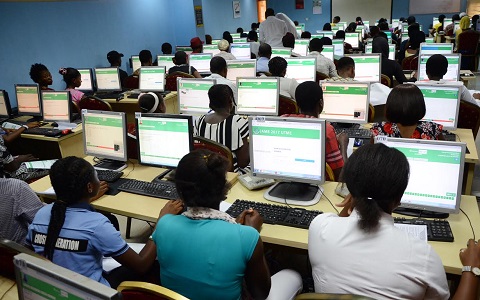

Joint Admission and Matriculation Board, JAMB, recently disclosed that candidates sitting for next year’s Unified Tertiary Matriculation Examination, UTME, will need to register with their National Identity Number, NIN.
This followed the collaboration between the board and the National Identity Management Commission, NIMC, to harmonise data of UTME candidates to reduce cost of registration and check underage registration.
According to JAMB Registrar, Professor Ishaq Oloyede, the introduction of NIN to UTME was in line with the directive of the Federal Government that NIMC should be the primary data collection centre.
Professor Oloyede explained that this strategy would work against all forms of registration infractions, which is the foundation of examination malpractices.
In addition, from next year candidates will begin to register for their examination using the national identity management number, NIM, this will enable the board solve the challenges of multiple registrations.
In the words of the board’s spokesperson, Dr Fabian Benjamin experience had shown that malpractice in the conduct of public examination, especially the UTME, occurred at the registration stage.
He added that a porous registration exercise would compromise the examination process hence the need for proactive measures to secure the registration stage of the board’s exams.
Dr. Benjamin stressed that the longer the registration period of admission exams the more the chances fraudsters would have to perfect strategies to circumvent the process.
For instance, as part of the measures to check malpractice ,all school based centers will not be allowed to participate in next year’s JAMB exams but will be considered if the computer based centers belong to the secondary schools and the principal of the schools are responsible as administrators of the CBT centers.
On impersonation challenges facing the board, Dr Benjamin explained that for this year’s UTME, the board engaged facial match but not as reliable as biometrics of candidates fingers.
He added that unlike last year when twenty-four thousand cases of biometric issues were recorded, only two thousand cases were associated with this year’s examinations as a result of the biometric verification.
To this end, candidates are warned to refrain from depending on past question papers usually sold by fraudsters, as the board does not recycle questions.
According to the board spokesperson, besides the juggling of questions per person and by zone, questions would be equally set based on geopolitical zones, all aimed at ensuring the sanctity of its examinations.
It is expected that with all the measures put in place by the board, examination malpractices will be reduced to the barest minimum.
Oluwasebimotife Ajayi